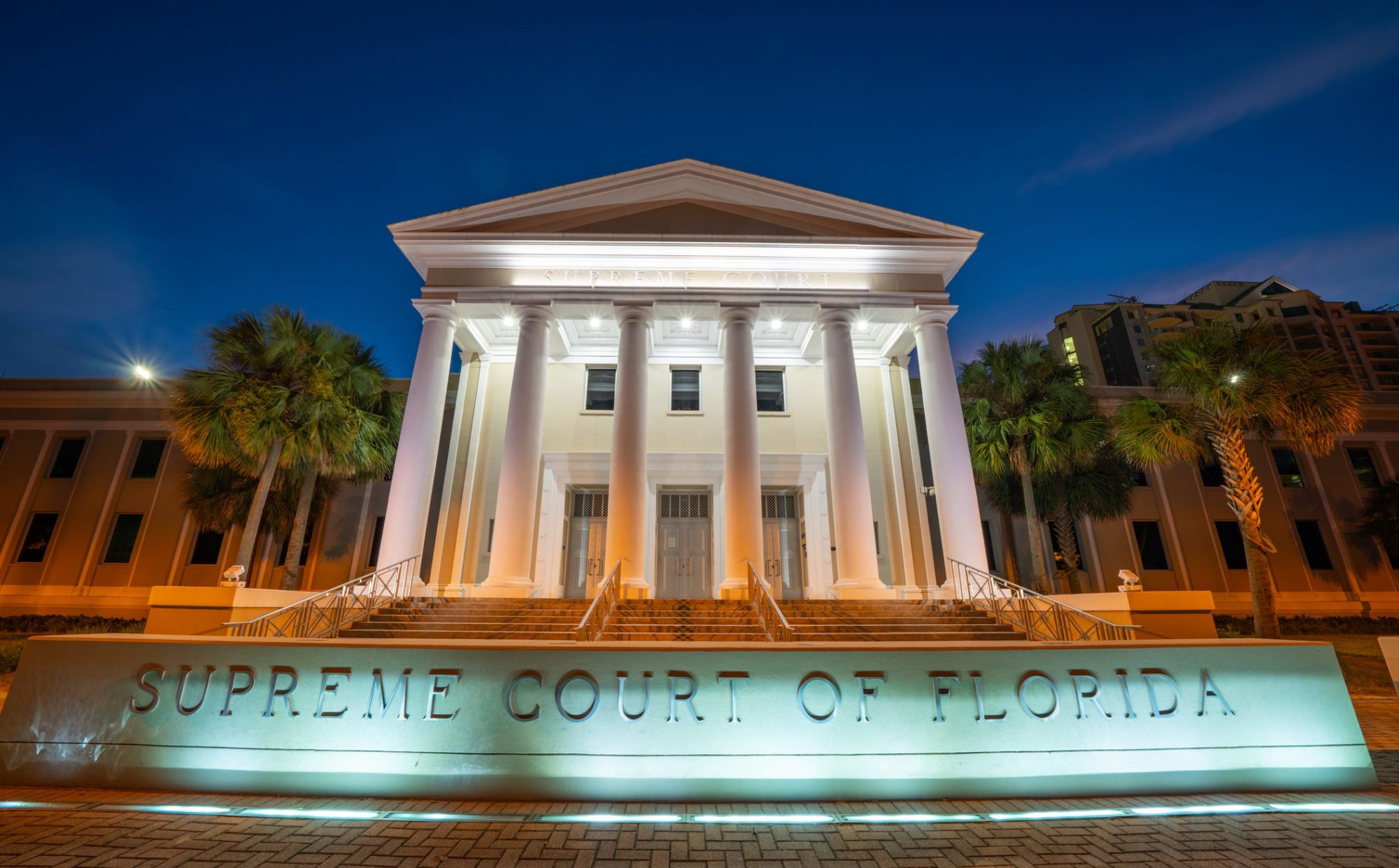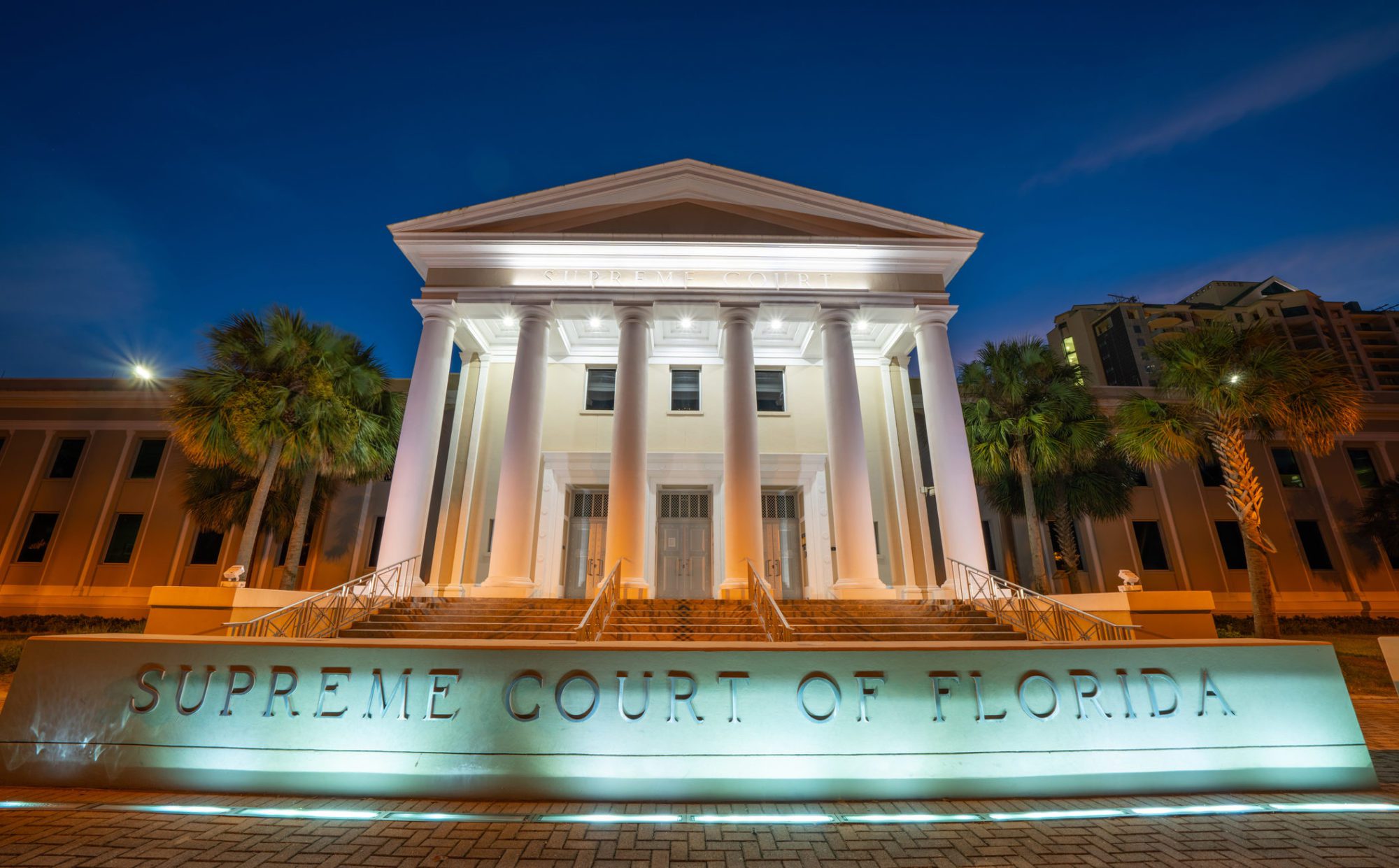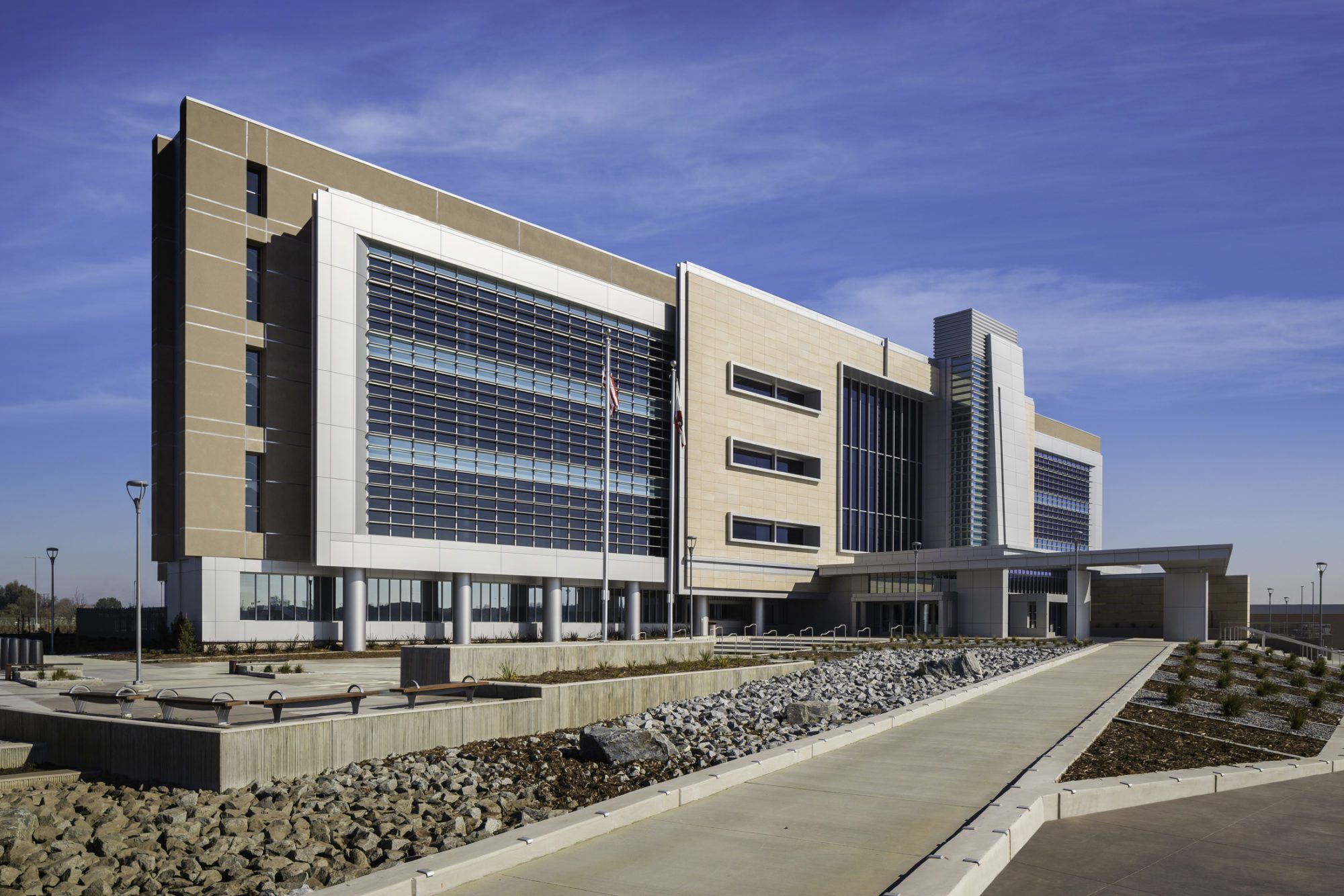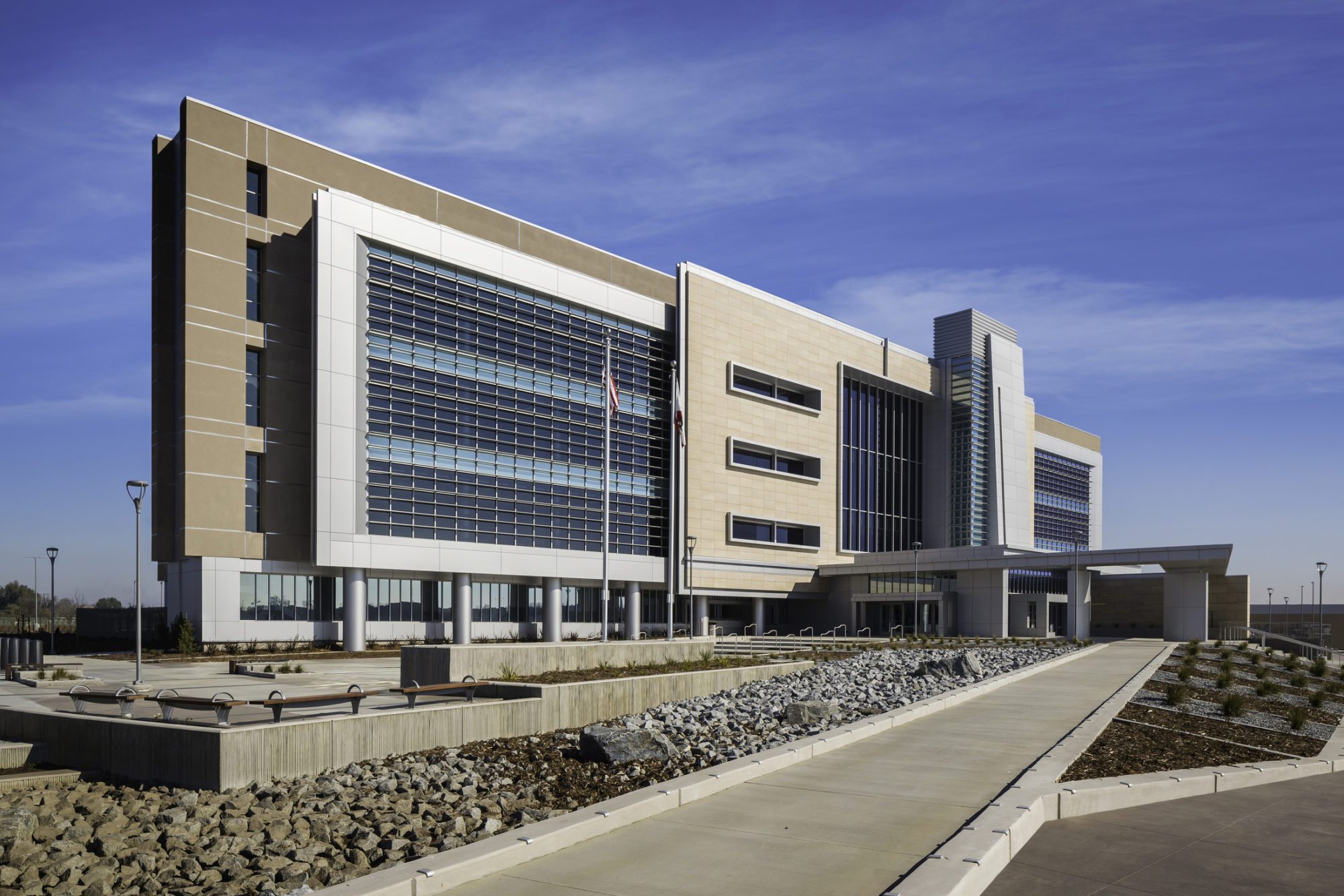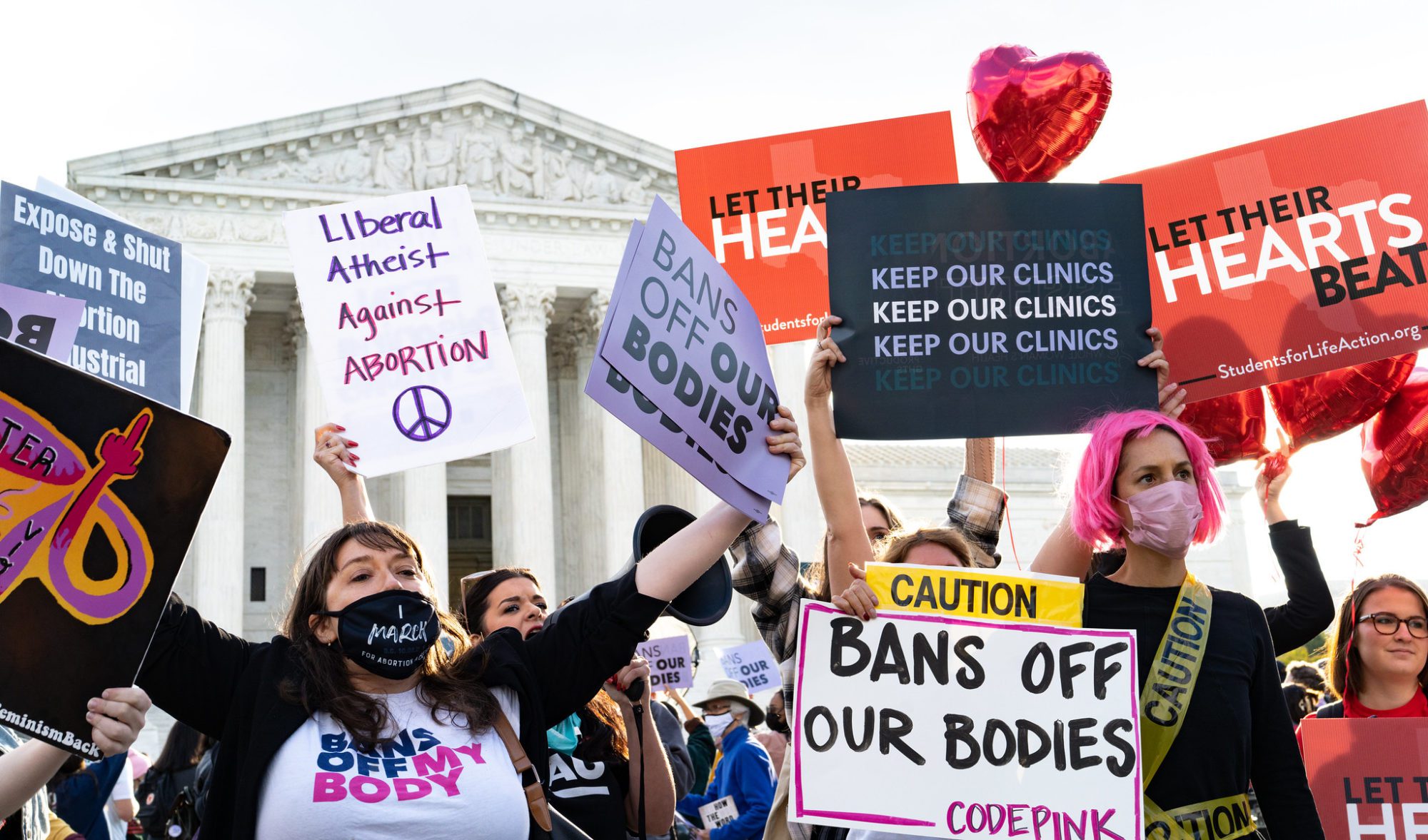With Abortion Bans, a Bewildering New Reality for Courts and Law Enforcement
We unpack nine common questions on who is enforcing the new restrictions, and who could mitigate some of the harms.
Chris Geidner | July 8, 2022
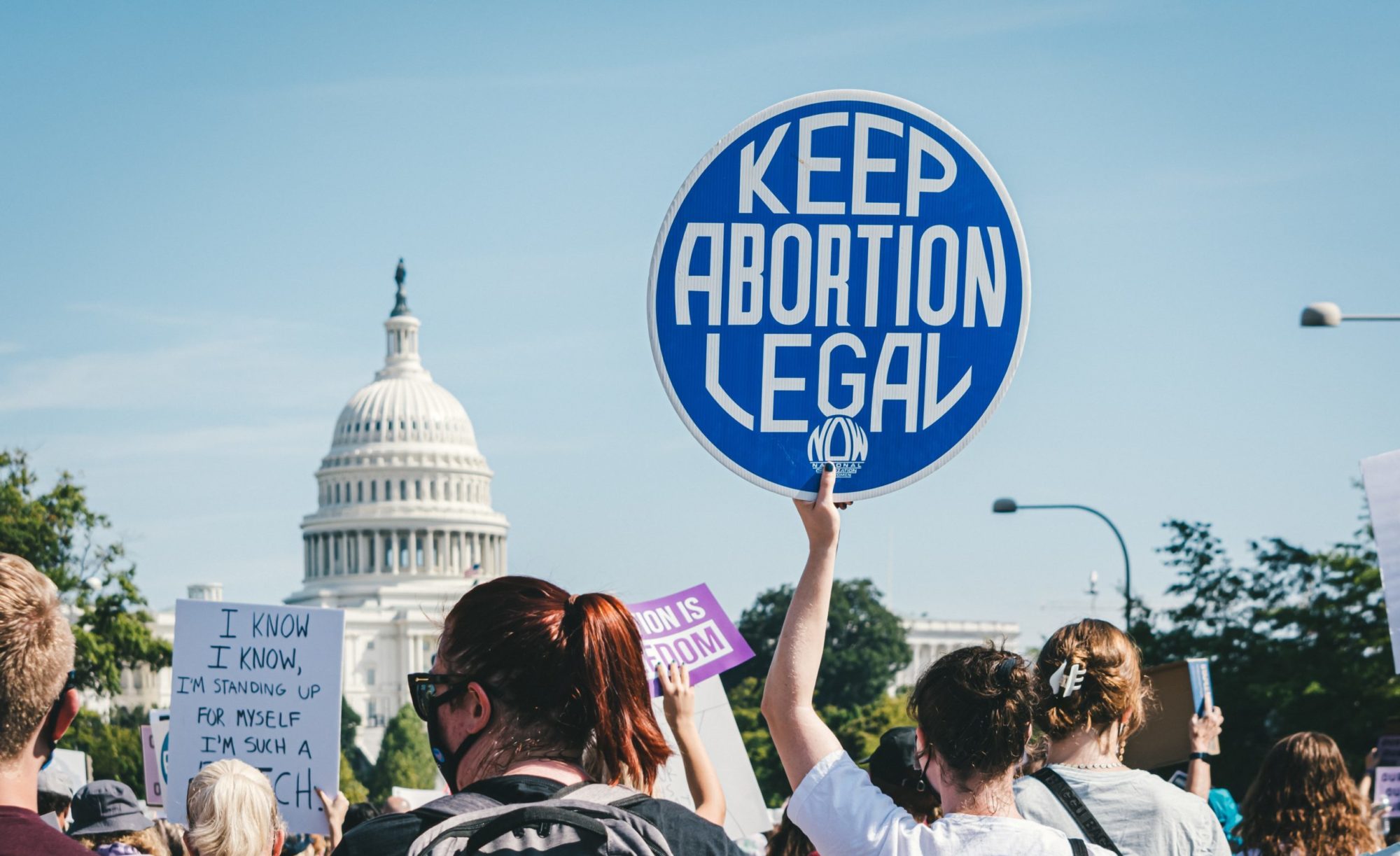
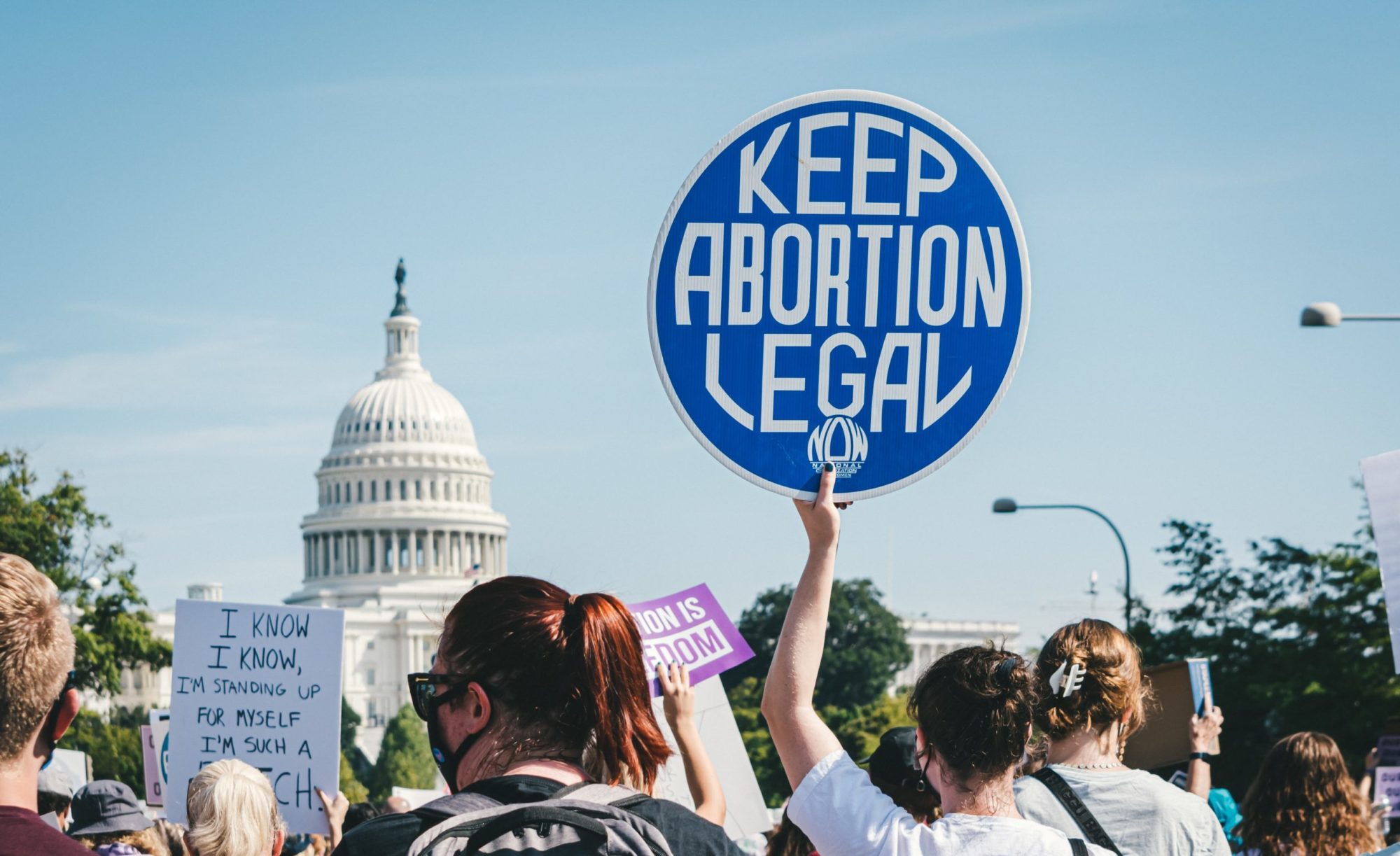
Every day, it seems, there are court rulings and executive orders and new legislation that are changing the legal landscape around abortion. They’re introducing new restrictions and shifting what may happen where abortion is no longer legal. As the Supreme Court ruling overturning Roe v. Wade ripples out across the nation, people are still in shock—even as they need to be making decisions about their lives.
Issues tied to the enforcement of the new bans have sparked mounting confusion. Besides the multitude of state statutes, the law enforcement agencies in charge of executing them are delivering conflicting messages as to people’s rights. And advocates are racing to figure out how to mitigate some of the harshest risks, especially regarding criminal charges. So, in this piece, Bolts tries to answer some of the biggest questions out there.
1. How, and where, is the Dobbs decision restricting abortion access?
In recent years, some conservative states took ever-more drastic steps to try to restrict abortion rights, seeing how far the Supreme Court would go along with their attempts to curtail the availability of abortion. When then-President Donald Trump replaced Justice Ruth Bader Ginsburg with Justice Amy Coney Barrett, however, the anti-abortion forces went even further, passing laws that would clearly be unconstitutional under current Supreme Court precedent. Then, Mississippi asked the new court, explicitly, to overturn Roe v. Wade, the Supreme Court decision that had protected the constitutional right to an abortion up until viability since 1973. The court agreed on June 24.
At the same time, sitting there in the background were two sets of states that had much more restrictive bans on the books. A handful had pre-Roe abortion bans that were never repealed and, arguably, would go back into effect after Roe. A larger set of states passed what have been called “trigger” bans—laws banning abortion to be “triggered” by Roe’s overturning. Altogether, more than 20 states have one (or both) of those types of laws.
Now, as a result of the Dobbs decision, those laws are, state by state, going into effect. According to the Guttmacher Institute, as of July 7, eight states already ban all abortions and another two ban abortions after six weeks. More bans are expected to take effect in the weeks ahead.
Abortion access has rapidly plummeted. Across the states with these restrictions, clinics have shuttered and medical providers have left states where they were solidly implemented. Even in places where local officials say they will protect their residents from the harshest, criminal consequences of the bans (see below), the legal risks of breaching state law can still be great. And abortion funds and other nongovernmental efforts meant to help people seeking abortion or contraception are stepping up, after already having had a lot to do in pre-Dobbs America, where access to abortion was already diminished if not non-existent in many areas.
2. Are there still anti-abortion laws that may be deemed unconstitutional?
The answer, as Justice Samuel Alito laid out in the court’s opinion in Dobbs v. Jackson Women’s Health Organization, is very few, at least under the U.S. Constitution. When considering whether abortion restrictions are allowed, Alito wrote, “rational-basis review”—the lowest standard for reviewing the constitutionality of laws—will be used to decide those case. This means that a state only needs to show that a “legitimate interest” supports the regulation, which will be given a “strong presumption of validity.” Alito went so far as to specify that very broad claims, like “respect for and preservation of prenatal life at all stages of development” or “the preservation of the integrity of the medical profession,” are examples of “legitimate” interests that would justify upholding a law.
Although Justice Brett Kavanaugh laid out a few examples of restrictions that would go too far, they involved restrictions that, in his view, would violate an independent constitutional provision. For example, he wrote that a state couldn’t ban a resident from going to another state for an abortion because that would violate “the constitutional right to interstate travel.” In short, he was not claiming that there are any limits on abortion restrictions themselves.
But state constitutional protections are another matter altogether. As Bolts laid out last week, state supreme courts can establish a right to abortion under state contitutions that is separate from any federal jurisprudence. A dozen states have held there to be such protections so far, but, even there, the Dobbs decision and changed state courts mean those decisions could be challenged. Conservatives are hoping to reverse decisions in Florida and Kansas. On the other hand, though, progressives hope that courts in Michigan or Utah might add to the count of courts finding state constitution-based abortion protections.
3. Who faces criminal prosecution or punishment?
The scope of abortion-related enforcement will vary dramatically in states that wish to restrict abortion severely or completely, but we already know the lengths to which states that wish to heavily prosecute abortion-related actions will go.
Most state criminal laws focus on the provider—criminalizing, for example, administering abortion drugs or performing an abortion. States provide for harsh punishments for anyone convicted of breaking those laws, with many allowing for prison sentences as long as five or 10 years for a conviction. Some, like in Texas, are even more extreme—with the possibility of a life sentence permitted under the law.
Several bans specifically criminalize “aiding or abetting” abortion providers, although every state has a more general law criminalizing “aiding and abetting” that could be used by a prosecutor wishing to employ it. Many of the bans do specifically exempt the pregnant person from prosecution under the statute. In Missouri’s trigger ban, for example, it states specifically that “[a] woman upon whom an abortion is performed or induced … shall not be prosecuted for a conspiracy to violate the provisions of this subsection.” In Arkansas’s pre-Roe ban, the law does not allow “the charging or conviction of a woman with any criminal offense” in connection with their own abortion.
Despite the exemption of pregnant people from direct prosecution under many abortion bans, that does not mean they are or will be safe from investigation or prosecution. Other laws have regularly been used—even under Roe—to criminalize or otherwise punish pregnancy outcomes.
The National Advocates for Pregnant Women (NAPW) documented more than 1,600 cases or investigations across the country since Roe that resulted from pregnancy outcomes, such as a miscarriage, that officials decided merited investigation or prosecution. For example, a large swath of these cases are the more than 500 women charged under Alabama’s “chemical endangerment” law, including some rather questionable prosecutions detailed in the NAPW-led brief at the Supreme Court in the Dobbs case. “Among those prosecuted,” the brief detailed, “were women who took a controlled substance pursuant to a valid prescription; who used marijuana to address severe epilepsy (as an alternative to prescribed medications known to cause fetal damage); and who ingested half a valium tablet when panicked by threatened violence from an ex-boyfriend.” Even in California, where abortion rights are broadly protected, one conservative prosecutor charged two women with murder over their pregnancy loss.
Many anti-abortion advocates are looking to make existing laws harsher still, including bringing the death penalty into play.
In addition to criminal prosecution, the government can also control who is authorized to practice medicine through licensure requirements. This is relevant, primarily to medical professionals, where a state attempts to create abortion-related limits on licensing. Under the Texas trigger ban, for example, “the appropriate licensing authority shall revoke the license, permit, registration, certificate, or other authority of a physician or other health care professional who performs, induces, or attempts an abortion in violation” of the ban. The “shall issue” language in the law means, effectively, this license revocation would be automatic should a medical professional even attempt to perform an abortion that would be illegal in Texas.
4. Who has the authority to enforce bans and other restrictions?
The first line of enforcement is police and other local law enforcement like sheriff’s deputies. These agencies typically identify potential legal violations and send them to prosecutors, who decide if they should bring charges (or take a matter to a grand jury), and trigger criminal proceedings. And other officials like attorneys general and judges get involved as well. Complicating matters, every state—and sometimes every county within a state—has different procedures for who can control these steps and what opportunities public officials will have to try to trump each other’s authority.
But we know that some broad questions, below, are popping up everywhere.
5. Can local officials choose to not enforce these restrictions?
Already, a group of 90 prosecutors have committed not to prosecute abortion-related activity. In the statement, issued the day of the Dobbs decision, the growing list of prosecutors stated, “[W]e decline to use our offices’ resources to criminalize reproductive health decisions and commit to exercise our well-settled discretion and refrain from prosecuting those who seek, provide, or support abortions.”
The group includes many prosecutors who live in states that are banning abortions, or that may do so, including Washtenaw County Prosecuting Attorney Eli Savit. “To not take the stand that we did, to not say very clearly that we will not prosecute abortion, there could be blood on our hands,” Savit told Bolts in May. Others include the district attorneys in many of Texas’s large urban counties, as well as prosecutors in Mississippi, North Carolina, and Tennessee.
The Ohio Prosecuting Attorneys’ Association took issue with this approach. “Prosecutors are not policymakers,” the association said in a statement. “They do not get to decide which laws to enforce and which ones not to.”
But that’s not true. Prosecutors regularly decide not to prosecute certain cases. It happens when they decide there’s not enough evidence in a specific case to prosecute. It also happens when prosecutors decide that certain categories or classes of cases aren’t right for enforcement—because they don’t justify the time or cost involved, for example, or because the allegation doesn’t cause a harm that the prosecutor thinks merits use of limited resources. Savit reminded Bolts that Michigan still has a law criminalizing adultery, which no one enforces.
Despite that, these are but a handful of the thousands of prosecutors across the country, including in states where abortion already is severely restricted or largely banned. In the coming weeks, as more trigger bans go into effect and still other restrictions and bans are passed, prosecutors will decide to pursue charges related to abortions—at times serious charges involving harsh potential sentences.
Other local officials are facing similar decisions on how to respond to the new restrictions. Some sheriffs and police chiefs have said that they will not enforce their state’s abortion ban or, if they live in blue states, that they will not cooperate with out-of-state investigations. On a similar note, some city governments are considering local ordinances that would direct local police departments to not investigate abortions and pregnancy outcomes, and to not collaborate with other public agencies over such investigations.
6. Who, if anyone, can stop or overturn local officials’ decisions to not enforce?
When prosecutors decide not to pursue investigations, several entities could intercede to change that decision. First, other prosecutors could step in. Depending on how and where activities relating to an abortion take place, another prosecutor could claim to have jurisdiction to bring a case. Conservative lawmakers in Texas, for instance, hope to pass legislation that would enable DAs to prosecute abortions in neighboring counties. Additionally, the governor in some states has the authority to reassign cases to other prosecutors; this recently happened in Florida when a prosecutor refused to seek the death penalty.
Some attorneys general also have the authority to independently prosecute cases, which in a state like Michigan could be a workaround for conservatives looking to sidestep progressive DAs should an anti-abortion conservative be elected attorney general, or the authority to issue opinions interpreting state laws that are binding on prosecutors. An attorney general can also bring civil litigation against providers, as the Texas attorney general has promised to do in an effort to make it impossible for providers to persevere, even without the threat of prosecution. Finally, as happened recently with a Virginia prosecutor, some judges can claim authority to act to remove a prosecutor’s office from a case.
7. Inversely, can state and federal officials stop local officials from enforcing bans?
There also are questions that will arise regarding what actions can be taken to minimize state or local abortion ban prosecutions. These include governors and state attorneys general taking actions to provide abortion-related protected—both through their office and, when possible, in court. The Democratic candidate for Arizona attorney general, for example, has said that she would use her supervisory authority over local prosecutors to prevent them from enforcing her state’s abortion bans.
In states that are friendly to abortion rights, lawmakers can also strengthen laws to prevent local officials from criminalizing pregnancy. Advocates are pushing a bill in California that would block sheriffs from investigating miscarriages and stillbirths.
They also include federal efforts to provide protections. The Biden administration has been slow to respond to the Dobbs ruling, only rolling out a limited executive order on July 8. In addition to enforcing Affordable Care Act protections relating to contraception availability and medical records privacy-related efforts, the biggest step the administration is taking is one it began before Dobbs: attempting to ensure medication abortion is available nationwide. (Even that effort is being fought in court as some states seek to ban all abortion, including medication abortion.)
8. Who is helping government implement abortion bans?
The government needs outside help in its enforcement efforts. As history professor Leslie Reagan detailed in her 1997 book, When Abortion Was a Crime, in past times, the medical profession played a key role in enforcement. During efforts to criminalize abortion at the start of the last century, “physicians asserted their sense of moral superiority through this antiabortion campaign”—with some doctors “consciously construing the idea that abortion was deadly” as part of that campaign.
Times have changed, somewhat. The American Medical Association backed the abortion clinic at the Supreme Court, and abortion is much safer, particularly with the advent of medication abortion. Still, individual medical professionals, even before Roe was overturned, have still been helping law enforcement investigate and prosecute pregnancy outcomes.
At the same time, technology has opened the world around us—but that opened world could lead to new outside help for enforcement efforts. Technological tools can be used by law enforcement to track alleged illegal activity, and worries over data privacy are rising. Law enforcement may also try to pull up bank, credit card, or phone company records to serve as evidence in an abortion-related prosecution.
Those who support or even report on abortion in a way deemed improper could be targeted by new legislative restrictions (which undoubtedly would face constitutional challenges, but it just takes five votes at the Supreme Court to uphold them). Additionally, technology companies are already restricting abortion-related communication relating to medication abortion.
There are older methods that law enforcement can use to track down allegations of abortion-related crimes. These include actions taken in the past, as detailed in Reagan’s book, like raiding clinics—while patients were in them—or coercing patients as they leave places where police have decided that abortions are taking place.
Conservative governments are also now looking to enlist private citizens in their efforts. Texas’s Senate Bill 8 not only banned abortions after about six weeks but also provided for enforcement through civil lawsuits by private individuals. The enforcement method was crafted specifically to avoid the litigation that would result from state officials enforcing a ban that would be clearly unconstitutional under Roe, a step that’s unnecessary now. Nonetheless, other states are taking the signal from Texas and pursuing such an enforcement path. Such laws could take away the power of those local prosecutors to decide against enforcing abortion bans; they also potentially create greater burdens on local courts as they sort through these lawsuits.
9. Can abortion be prosecuted across state lines?
Some Republican-run states are looking for ways to block people from traveling elsewhere to obtain an abortion. States run by Democrats are countering by putting in place sanctuary-like protections and restricting collaboration with conservative states. Already, for example, Washington state’s governor has barred the state police from cooperating with out-of-state investigations relating to abortion.
If states do begin attempting extraterritorial enforcement of abortion bans, that could lead to direct state-to-state conflict and new legal battles.
Legal experts point to a lot of constitutional issues with such extraterritorial enforcement, such as the “right to interstate travel” that Kavanaugh mentioned in his concurrence. But they also are deeply concerned that the current Supreme Court, which is emboldened to champion conservative priorities on a wide range of issues, will end up discounting that and other claims in favor of a state’s claimed right to regulate abortion..
—
Much of what is going to happen in the coming months remains uncertain, as court rulings, executive decisions, and state legislatures change the landscape by the day.
But these questions and the answers contained herein will hopefully serve as a path to understanding what steps people are taking—and what risks those seeking abortion services will be facing.



